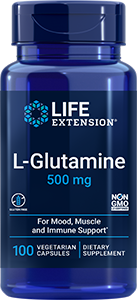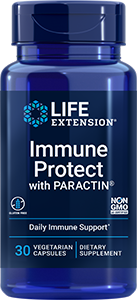 | May 15, 2009 | DHEA improves bone density in women | | In an article published in the May, 2009 issue of the American Journal of Clinical Nutrition, researchers at Washington University in St Louis, Missouri report that women who supplemented with the hormone dehydroepiandrosterone (DHEA) along with calcium and vitamin D experienced a greater increase in bone density than women who received calcium and vitamin D alone. Edward Weiss, PhD and his associates randomized 113 men and women aged 65 to 75 to receive 50 milligrams orally administered DHEA per day or a placebo for one year. For the second year of the study, all subjects received 50 milligrams DHEA while none received a placebo. All participants received a daily regimen of 700 milligrams calcium and 16 micrograms vitamin D for the duration of the trial. Bone mineral density was assessed via dual-energy X-ray absorptiometry, and hormones and markers of bone metabolism were measured in blood serum at the beginning of the study and at one and two years. At the one year mark, women who received DHEA had an average 1.7 percent increase in spinal bone density, while those in the placebo group experienced no increase. When women in the placebo group were switched to DHEA during the second year of the study, bone density improved by 2.6 percent compared to the beginning of the study, while increasing to 3.6 percent above baseline in the original DHEA group. Estradiol, IGF-1, and testosterone increased with DHEA supplementation, and bone turnover markers decreased in both groups during the first year and remained decreased during year two. Men did not appear to derive benefit from DHEA, although spinal bone density increased in both the DHEA and placebo groups by 1 to 2 percent, leading the researchers to believe that the calcium/vitamin D regimen could be responsible for the improvement. Dr Weiss noted that low DHEA levels have been associated with decreased bone density, and that the 2 to 4 percent improvement in spinal bone density observed in the current trial is at least equivalent to that experienced by women who use estrogen or bisphosphonate drugs for osteoporosis, although DHEA did not have the benefit of affecting hip bone density. "The results of our study are very promising," he remarked. "Similar studies have demonstrated much smaller benefits for bone than we found. However, calcium and vitamin D deficiencies, which are present in half of older adults, may have prevented DHEA from improving bone density in the earlier studies. In our study, we supplemented all participants with calcium and vitamin D to ensure that deficiencies were not present. This may explain why our study showed more favorable effects on bone density." "In addition to its beneficial effects on bone, DHEA replacement may have other benefits including improvements in risk factors for diabetes and heart disease, improvements in immune function, and improvements in psychological health," Dr Weiss added. | |  |
| Throughout their reproductive lives, women experience higher levels of estrogen produced by the ovaries. This estrogen has a cardioprotective effect, which accounts for women's lower rates of heart disease. However, around age 50, women undergo menopause, or the failure of the ovaries and the cessation of menstruation. This period is distinguished by a rapid drop in the level of sex hormones, including estrogen, DHEA, testosterone, pregnenolone, and progesterone. Various diseases have been connected to this rapid loss of hormonal protection, including heart disease and osteoporosis (Lock 1994). While many of the symptoms of menopause are caused by the loss of estrogen, there are also side effects associated with the drop in DHEA and testosterone among menopausal women, including: - Decreased libido
- Decreased strength
- Decreased muscle mass
- Decreased bone density
- Decreased energy (Braunstein G 2002)
One analysis of existing studies found the DHEA had these benefits among postmenopausal women: - A 30 mg to 50 mg daily dose improved mood, sense of well-being, and sexual appetite and activity among women with adrenal insufficiency (Buvat J 2003).
- A long-term trial of women over 60 reported significant increases in bone mineral density (Buvat J 2003).
- A study among women aged 70 to 79 showed improvements in sexual desire, arousal, and enjoyment (Buvat J 2003).
Osteoporosis (bone thinning) affects millions of late-middle-aged to elderly individuals of both sexes, but is more common in women than men. In women, a major contributing factor is the loss of estrogen at menopause, which parallels the decline in DHEA. DHEA appears to exert a positive role in bone metabolism by inhibiting bone resorption and stimulating bone formation (Labrie F et al 1997; Haden ST et al 2000). It also seems to aid calcium absorption (Carlstrom K et al 1988; Taelman P et al 1989). DHEA has proved effective in clinical trials treating osteoporosis (Villareal DT et al 2000). However, a correlation between DHEA and bone mineral density appears variably in women and not at all in men (Brody S et al 1982; Nordin BE et al 1985; Deutsch S et al 1987; Wild RA et al 1987; Barrett-Connor E et al 1993). |
|  |   | | The function of glutamine in stimulating glycogen synthase, the enzyme which controls the synthesis and storage of glycogen fuel in muscles and liver, may provide a mechanism by which glutamine supplements promote enhanced fuel stores. Glutamine supplements cause a rapid rise in cellular glutamine levels and glutamine stores in muscle. Glutamine is a very diverse amino acid that is utilized in numerous functions that are important for daily living. People that do heavy exercising can lower their glutamine levels causing stress to their body and immune systems. For that reason, supplementing with glutamine can be important to a serious athlete, someone challenged with muscle loss, or who wants to help maintain optimal immune function under heavy stress. | | |   | | Immune Protect with PARACTIN® contains a combination of patented ingredients that have been clinically shown to boost immune function, increasing the body’s natural ability to combat challenges. Immune Protect with PARACTIN® provides 100 milligrams of a proprietary, patented form of beta glucan that has been proven to activate the host immune system’s primary defenders by activating complementary systems, enhancing macrophages and natural killer cell function. The immune cell-priming capabilities of this patented, highly purified yeast derivative exceed those of all other sources of immune supplements tested to date. The formula contains PARACTIN®, an extract derived from an herb that has been used in Asia and India for thousands of years to help with inflammation, and provides significant seasonal support. | | | |  | | Life Extension Update | | What's Hot | | Life Extension magazine | |















